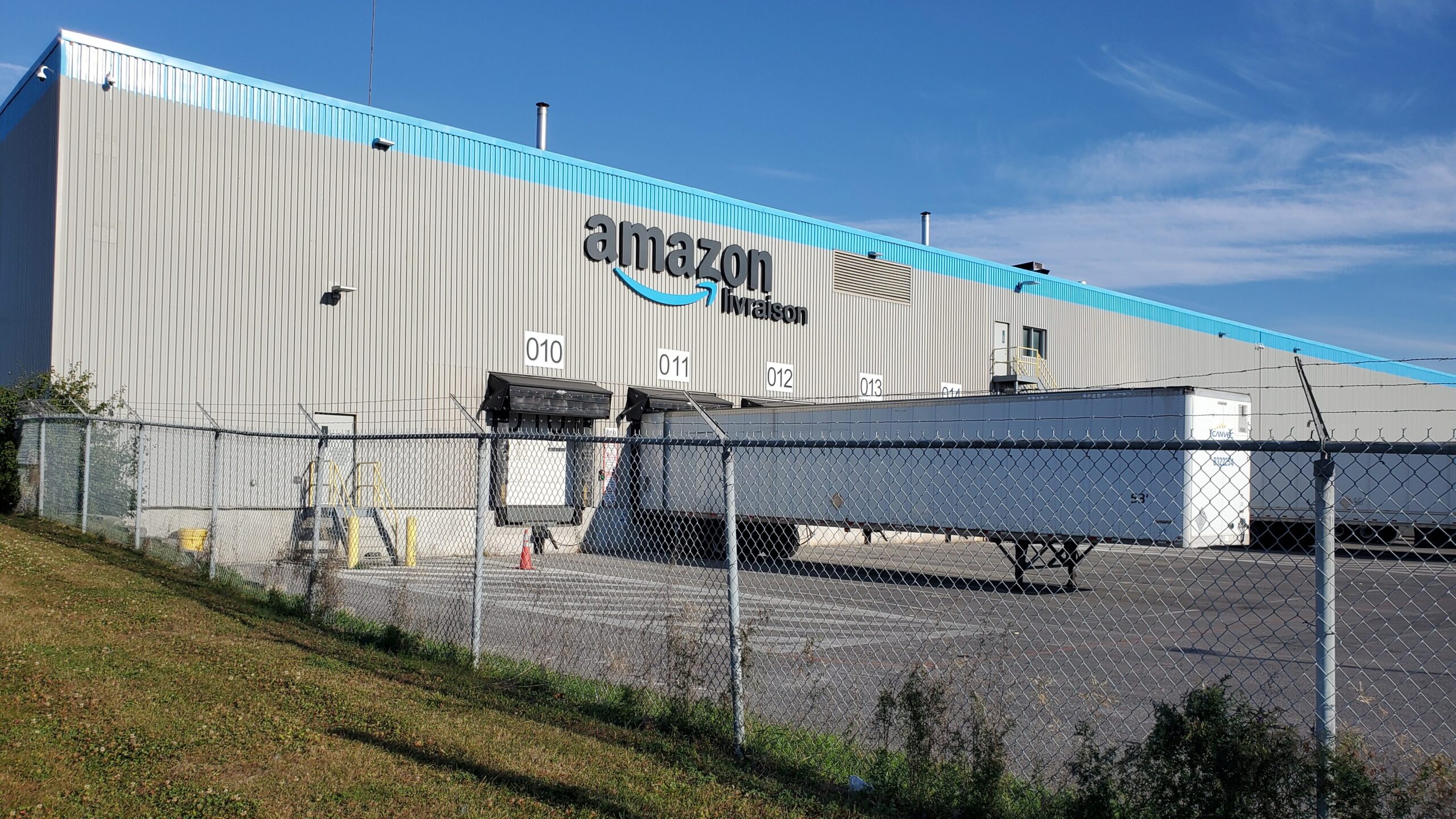Last week, Quebec's Administrative Labour Tribunal has dismissed Amazon's constitutional challenge against the Quebec Labour Code. In May 2024, the retail monopolist had alleged that the unionization of workers at its DXT4 warehouse in Laval violated the workers' freedom of association.
The administrative judge, Irène Zaïkoff, stated that Amazon's arguments were based on mere suspicions and hearsay. She also affirmed that employers are not in a position to advocate for their workers' rights.
To Félix Trudeau, president of the Syndicat des travailleurs et travailleuses d'Amazon Laval (STTAL-CSN, this makes a lot of sense. “It's the workers who decide whether to unionize, it's not Amazon, it's not the company, the huge multinational, that has to defend its employees' freedom of association.”
The 200 or so workers at DXT4 became the first Amazon employees in Canada to form a union in April 2024. The TAT accredited their union in May.

Caroline Senneville, president of the CSN, which represents the workers, expressed satisfaction with the ruling. She emphasized that workers have the constitutional right to unionize without interference from Amazon.
Senneville criticized the company for its attempts to thwart unionization efforts and reiterated that Amazon must respect Quebec's labour laws if it wishes to operate in the province. "If it's not natural in Jeff Bezos' empire, the CSN will be there to assert the rights of the company's workers."
“Then and now, I consider it outlandish,” Trudeau adds. “I find it shameless and regrettable that an American multinational setting up shop in Quebec should believe itself entitled to modify Quebec's labour code.”
Article 28 of the Quebec Labour Code sets out a union's right to be certified by the province when more than 50% of workers agree to be represented by the union. That majority can be determined either through a vote, or through more than 50% of workers signing a union card. Among Amazon's complaints was the fact that no vote occurred at DXT4.
This point of view made no sense to the warehouse workers. Trudeau explains: “Signing the cards involves discussing and informing each person who signs, and the card ultimately acts like a voting ballot. There was indeed a democratic process.”
“In any case, Amazon's argument is hypocritical because in Vancouver, for example, there was a vote, and the vote was contested. It's not the fact that there wasn't a vote that's the problem for Amazon: it's the union that's bothering them.”

The tribunal also rejected Amazon's argument: “Voting by secret ballot remains exceptional. The court may use it if it deems it necessary in certain circumstances. It will only be mandatory if the association brings together between 35 and 50 per cent of employees.” At the moment the union was accredited, more than 50% of workers had signed cards.
Amazon has issued a statement signalling its intention to “continue to pursue its case.” In addition to the Quebec complaint, Amazon has issued a constitutional challenge in the United States.
“They can keep throwing money at it if they really want to,” replies Félix Trudeau. “But I think that by continuing to do so, they are attacking the entire labour movement in Quebec. I think they're biting off more than they can chew right now.”
Negotiations at DXT4 are currently underway. Employees held demonstrations on Monday, October 21 to pressure Amazon to come to the bargaining table in good faith. STTAL's president is optimistic: “We're going to continue to mobilize to put pressure on Amazon and negotiate an agreement that makes sense.”
- “We’ve taken on a giant”
- Film review—”Union” lets the organizing process speak for itself
- Victory for Amazon workers at Quebec’s labour tribunal
- Laval Amazon Workers Turn Up the Heat
- Surprise show of force by Amazon workers in Laval
- Laval Amazon workers protest for a fair salary
- Amazon Peak Season Kills
- Amazon delivery drivers walk off due to extreme cold
- Amazon Workers Keep Getting Poorer
- Court dismisses “outlandish” Amazon constitutional challenge
- UK Workers take on Amazon
- Amazon hires 1300 workers to bust British union
- UK Amazon workers voting on union recognition
- Two steps forward, one step back for Unifor at Amazon fulfilment centres
- Amazon workers in Quebec ready to form historic union
- Amazon at war with the Labour Code following Quebec union certification
- Amazon pours millions into union-busting meetings
- Amazon’s no-holds-barred legal assault on unions comes to Quebec
- Amazon buys time at Quebec’s labour tribunal


